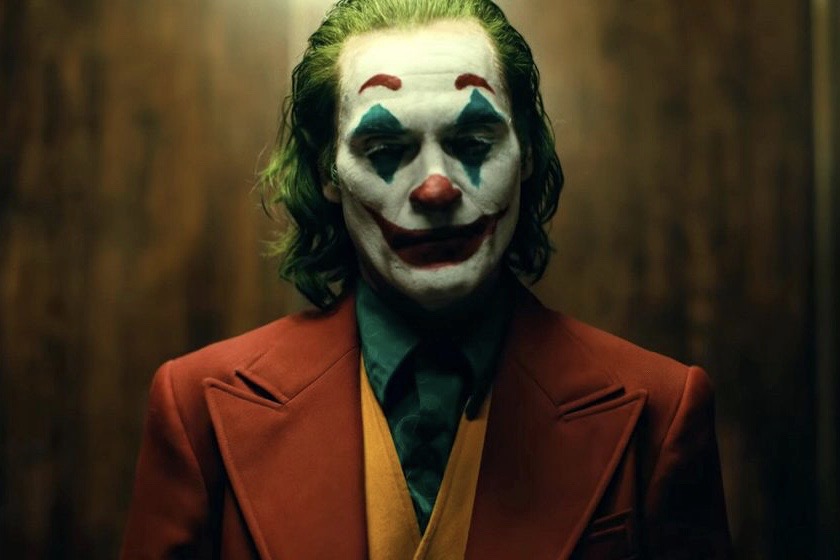Joker: A psychological masterpiece
Nov 7, 2019
When the FBI issued a statement saying they would be on high alert for Joker, my immediate reaction was one of dismissal. In an age where films like The Purge, IT, Us, and John Wick are filling theaters and getting major box office attention, it didn’t occur to me that people still paid mind to contentious action, mentally jarring character themes, and anarchical anti-political symbolism. With Joker however, it took the first 30 minutes for me to realize this wasn’t the average thriller. In just the two weeks since it’s been released, Warner Bros.’ Joker was already projected to soar past 185 million dollars, leaving audiences shaken and taken aback as the popular comic book character comes to life in a new, hair-raising depiction of the killer clown.
Heath Ledger’s Oscar-winning performance as Joker in The Dark Knight (2008), stunned audiences across the board — and for good reason. Not only was his portrayal a striking depiction of the human psyche, but it was also widely attributed to the actor’s demise, leaving a mark on the iconic character. In 2016, Jared Leto assumed the role of Joker in the film Suicide Squad, a performance that left many viewers leaving theaters disappointed, to say the least. When Warner Bros. announced that Joaquin Phoenix would be taking over the role for the 2019 film, critics and spectators took to the internet, ready for change, and equally ready to put the past behind them.
I was excited to see this new rendition for a few reasons. In addition to the new casting decisions, Joker was on track for a complete character reboot. In past renditions, Joker has been portrayed as a figure of mystery. Without a name nor an origin story, except for a background of mental insanity, Joker has been burned into viewers’ minds as a staple when it comes to absolute villainy. Some would argue that this scarcity of information is what has made Joker such an enticing character to begin with. In Joker, Phoenix leads viewers through an emotionally jarring storyline, creating a new backstory surrounding a contemporary motif: the insanity of a crippling society.
The movie gives Joker a name: Arthur Fleck. As it progresses, the film follows Fleck’s search for societal acceptance among a nation that doesn’t understand him. We follow Fleck as he navigates through the hardships of an unforgiving comedy club, the blaring walls of an insane asylum, a possessive mother in a rundown apartment, and the cries of masses bent on upending a system of government oppression. Through it all: murder, self-discovery, and lots of maniacal laughter, we get a character that breaks the common mold so often accepted in modern comic book depictions. Phoenix takes Fleck to another level, while also addressing current themes relating to mental health and upheaval towards the high class.
What makes Joker especially unique is the fact that it subliminally addresses a live issue felt in part by a large number of Americans. Through his rise to social recognition, Fleck finds himself in the middle of a brewing outcry of working class people looking to overturn the facade of political inequality. He becomes a poster child for the feeling of betrayal felt by the citizens of Gotham City who’ve suffered at the hands of wealthy business people and corrupt politicians. The movie pinpoints the feeling of apathy and resentment towards the lower class and establishes a public figure for these individuals to revolve around; someone who’s experienced the pain of social expulsion; someone who, more than anyone, feels like he’s been abandoned by our society. A Joke. Ironic.
Cinema is subjective, and the fact is that not everybody may enjoy Joker, nor will they have the same deductions as I have. In an era where explosive action is one of the most money-making strategies in the film industry (a la Hobbes and Shaw, John Wick, Mission Impossible, etc.), this film changes the game, focusing on the mental extravaganza and the internal violence of a broken man looking for a light. Within this comes a level of cinematography that some might find hard to watch.
Nonetheless, the film still deserves a spot in contemporary conversation. Whether it’s discussing mental health, or the issues facing our American society, Joker takes on a new and different style of filmmaking, drifting from the modern layout and forcing us to think and react in different and spectacular ways. If you consider yourself a film critic (or fanatic), Joker is sure to give you an interesting experience.




